Keep them in the kitchen or throw them in a bag–these toys also serve as functionally cute souvenirs to bring home.
lifestyle
You may want to consider one of these wards chosen by Japanese survey takers if you’re planning on settling in Tokyo during your golden years.
Five things our reporter noticed after moving from Tokyo’s safest area to its least safe one.
The announcement suggests you can print your own futuristic home sphere for the price of a car!
A widespread health crisis served as a wake-up call to many people’s own personal health crises.
Japan’s economical provider of weird products does it again, with a battery powered infinity mirror light. Who doesn’t need one of those?
Worried by the prospect of growing distant from your daughter? According to this woman, there’s one main thing you have to keep in mind.
Buy the “Pudding-and-Bag” set and choose three tasty puddings, plus receive a re-usable storage bag to keep them nice and cool.
While they might look appealing to visitors, according to residents, these suburbs can be hell to live in.
This expat shows us why she loves her 8 square-metre (86 square-foot) living space in Japan’s crowded capital.
Any expat, exchange student, or anybody who has otherwise spent a long period of time abroad will tell you that, while the local food is exciting and fun and delicious for a while, eventually you’ll start to experience intense urges for the comfort foods and products of your native land. For some, these urges may be occasional, mild pangs, but for many, the urges are so strong they can’t resist stocking up on boxes and boxes full of their favorite items from home every time they head back.
Recently, a Japanese female expat who has been living in America for years introduced our sister site to the top 10 items that she likes to stock up on when she visits Japan:
In Japan, the majority of people bathe at night before going to bed. Even if they don’t stick to the traditional routine of rinsing off before soaking in a hot bath, most Japanese find the idea of climbing into bed without having at least hopped in the shower first supremely icky – almost as icky as walking around your home while wearing your outdoor shoes.
In the west, however, many of us prefer to shower before leaving the house in the morning. No matter how well you slept the night before, the thought of not washing prior to putting on work clothes and heading out for the day seems pretty gross to most of us.
So for this week’s Super Mega Important Debate, we’re asking you to answer this one simple question: Do you bathe before bed or before work each morning?
Whenever people ask me what I want to happen after I die, I always tell them I want a Super Mario-themed funeral where, at the end of the ceremony, the Mario death music plays and my casket is launched a few feet up in the air, then allowed fall down into the earth. I’ve always thought that would be a pretty cool way for friends and family to send me off, but the actual location of the funeral – or even really what happened to my body afterwards – has never been all that important to me.
Westerners have surprisingly little ritual when it comes to death. There’s usually a wake or a funeral, and then, if you’re lucky, every couple of years Solid Snake comes by to stand in front of your grave, look grim and deliver a two-hour monologue about the horrors of war. The Japanese, on the other hand, make a point to visit and pay respects to the dead every year through somewhat ritualized ohakamairi, so the location of your grave is an important thing to consider.
So important, apparently, that specialty online grave retailer Ohakamagokorokakaku (“ohakamago”) is considering offering a service to move the graves of loved ones, and recently conducted a survey among Japanese people asking: “Where would you most like to ‘live’ after death?”
A survey out this week asked 200 salarymen – office workers in Japan – about their work and lifestyle habits. The findings have been reported in the Japanese media under headlines such as “The bad habits of low earners” and “People on a low income pee in the bath – but why?!”
But this kind of survey tells us more about the survey creator’s attitude towards low-income citizens, than it does about the employees who answered it.
As well as being the start of the new business and academic year, April in Japan also marks the time when new graduates make their first forays into the world of full-time employment and many companies rotate their staff both to keep them on their toes and help them acquire new skills. It’s a fun, frenetic time of year, and everyone from kids in their new school uniforms to fresh-faced employees wearing crisp, black suits looks tremendously smart and presentable as they hurry to their place of education or employment, eager to make the most of their day.
In May, however, it all comes crashing down. Reality sets in and people start to realise that everything is just as awful as it was before, albeit with a few quirks and a shiny new name badge or lunchbox. The fire in kids’ bellies goes out, the twinkle disappears from new employees’ eyes, and they start to approach their work with all the enthusiasm of a pot-smoking snail going through a serious emo phase.
This, dear reader, is gogatsu-byou; the phenomenon that occurs every May and affects millions of Japanese to some degree or other.
Rakuten Research has released the results of an online poll about the kinds of men women in Japan do not want to marry, and as a result the heads of lonely trolls are exploding all over Japan.
Collating results from 100 female secretaries between the ages of 30 and 49, the survey had three possible answers for each prompt: “I’d be OK with marrying him,” “I’d be hesitant to marry him,” and “I absolutely would not marry him.” Only the 10 list of undesirable traits in potential husbands were published, and only three qualify as being so bad that the respondents said there’s no way they’d marry them.
Relationships are something that have to be worked at rather than simply hoping will go well and complaining about when they’re not everything we dreamed. That honeymoon period where you’re first getting to know your partner and learning one another’s little quirks is fun and exciting alright, but it eventually ends and before you know it you’re having to think about things like whose turn it is to hang out the laundry or clean the sink.
One thing that really puts relationships to the test is whether two people can stomach one another’s little habits and quirks. Sharing your home means letting your partner see you at your most natural, rather than just freshly showered, shaved and looking good for dates. Farting in your sleep, trimming your toenails, popping off to the bathroom for a number two; these things all have to be done and there’s no way of hiding them forever. But there are certain behaviours that we all really ought to get in check before signing a lease on an apartment or agreeing to cohabit, as exhibited by the following three tales from gentlemen (and we use the term loosely) in Japan…
Kids’ hopes and dreams for the future can change from one minute to the next and very often depend on the TV shows they watch and whatever their friends are talking about on any given week. But a recent survey conducted by human resource consulting company Adecco has revealed some interesting information about the future aspirations of children from Japan compared to those of kids from other eight other Asian countries.
Ever consider going having a meal with friends or watching a movie on your way to work? While many of us can’t help reaching for the snooze button in the morning, there is a growing number of people who are waking up hours earlier and having a social life before they go to work.
The movement is called Extreme Shussha (extreme going to work) and as of this summer it has been getting increasingly popular in Japan. The rules are simple: Don’t be late for work; don’t bother anyone; and don’t fall asleep when you get there. Beyond that you can do whatever your heart desires.
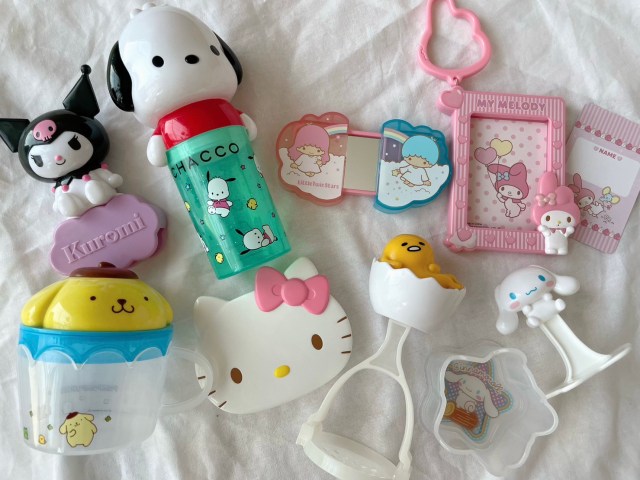
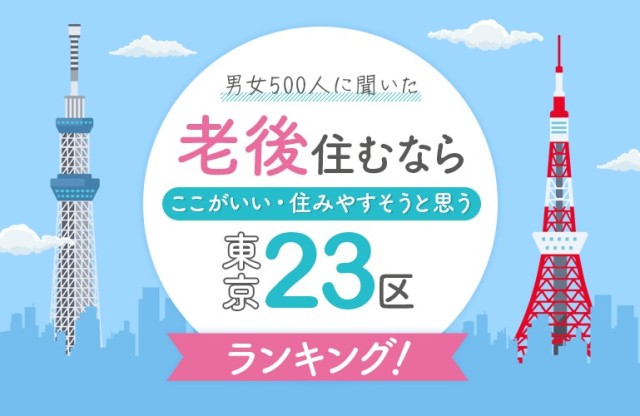
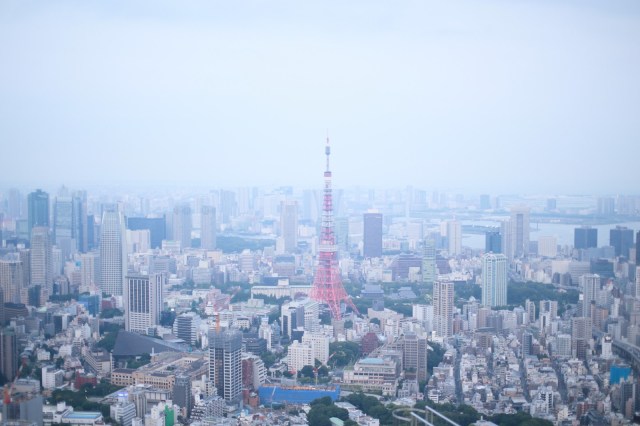

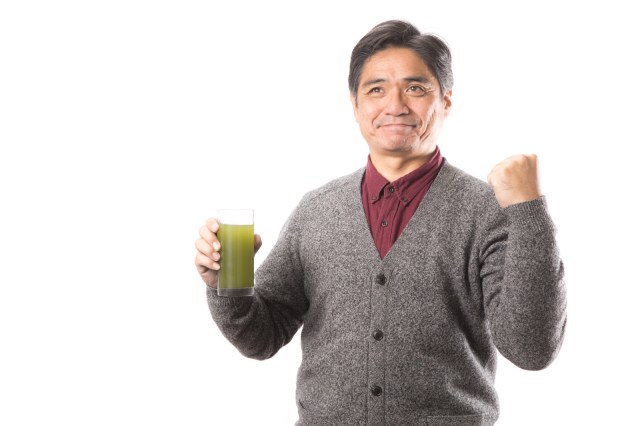
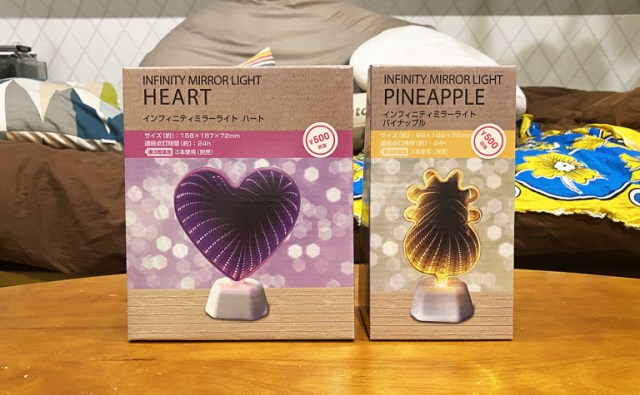
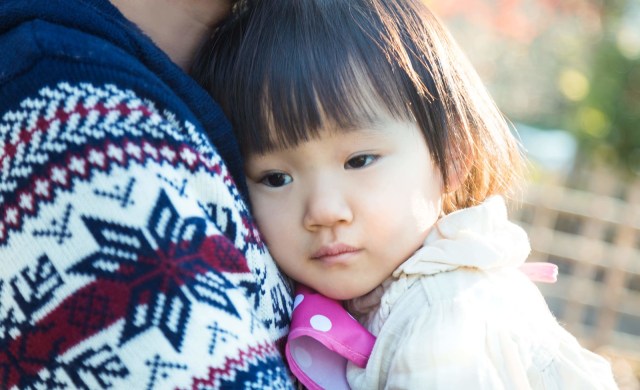

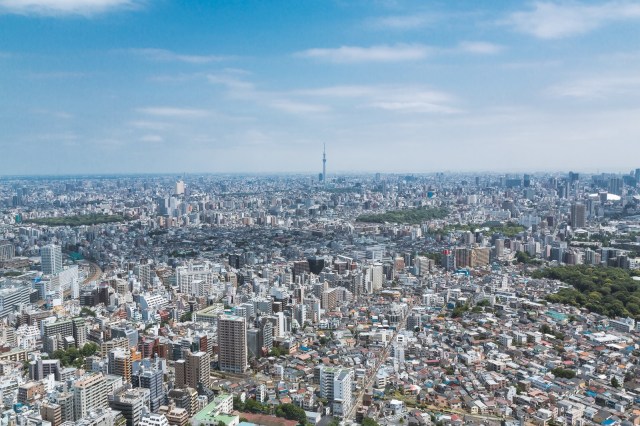

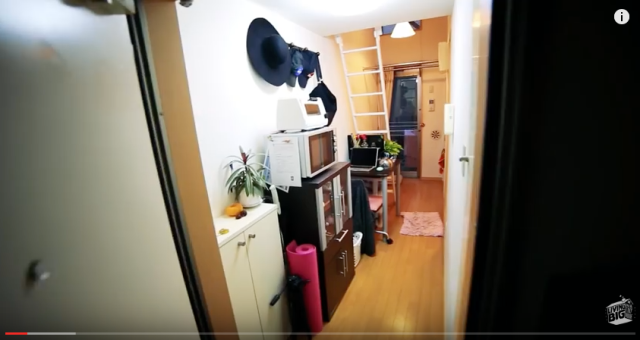
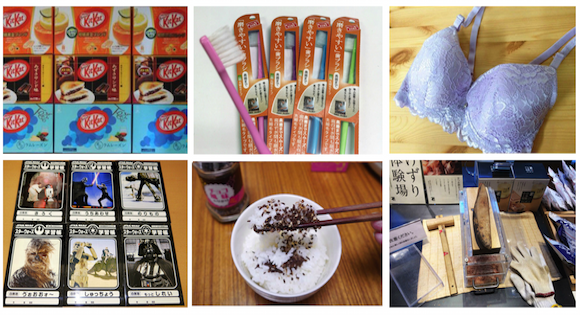
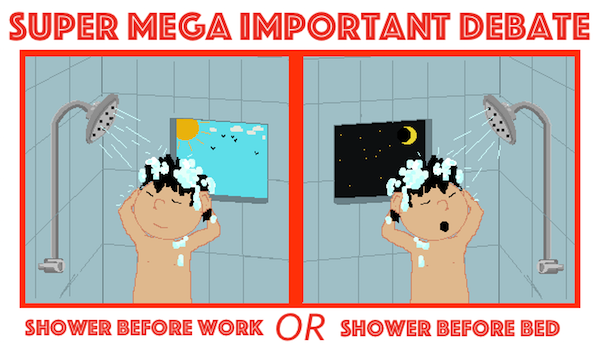
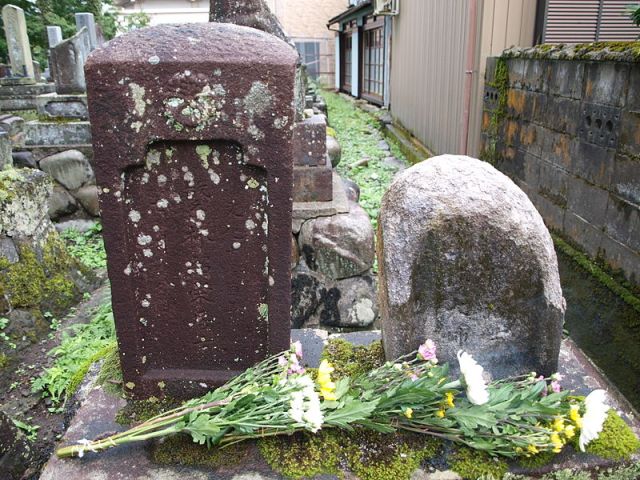
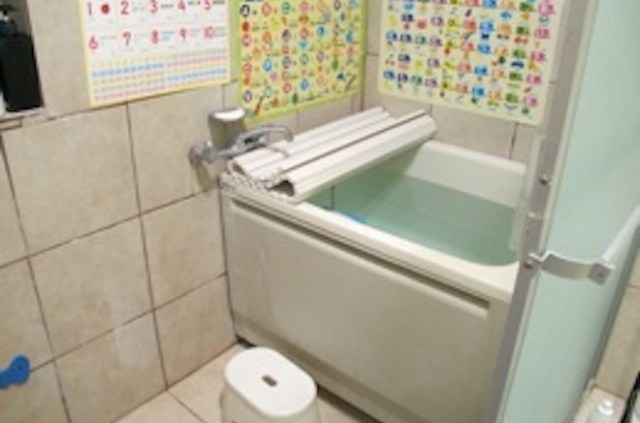

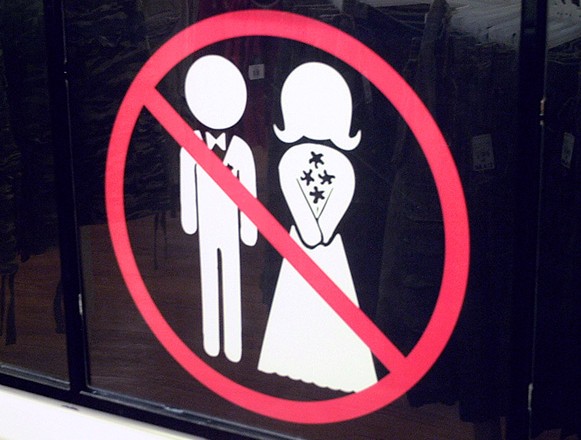
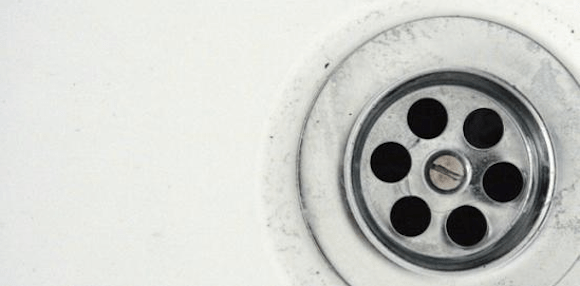

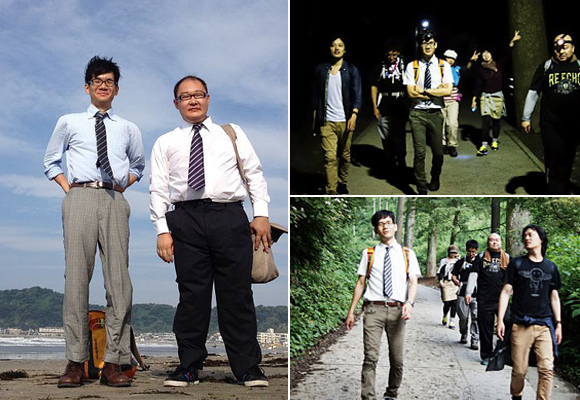
 McDonald’s new Happy Meals offer up cute and practical Sanrio lifestyle goods
McDonald’s new Happy Meals offer up cute and practical Sanrio lifestyle goods All-you-can-drink Starbucks and amazing views part of Tokyo’s new 170 meter-high sky lounge
All-you-can-drink Starbucks and amazing views part of Tokyo’s new 170 meter-high sky lounge Super Nintendo World expansion gets delayed for several months at Universal Studios Japan
Super Nintendo World expansion gets delayed for several months at Universal Studios Japan Studio Ghibli glasses cases let anime characters keep an eye on your spectacles
Studio Ghibli glasses cases let anime characters keep an eye on your spectacles Beautiful Sailor Moon manhole cover coasters being given out for free by Tokyo tourist center
Beautiful Sailor Moon manhole cover coasters being given out for free by Tokyo tourist center Is the new Shinkansen Train Desk ticket worth it?
Is the new Shinkansen Train Desk ticket worth it? More foreign tourists than ever before in history visited Japan last month
More foreign tourists than ever before in history visited Japan last month Godzilla figure based on Shin Godzilla CG model is stunningly detailed, shockingly expensive
Godzilla figure based on Shin Godzilla CG model is stunningly detailed, shockingly expensive Randomly running into a great sushi lunch like this is one of the best things about eating in Tokyo
Randomly running into a great sushi lunch like this is one of the best things about eating in Tokyo Mister Donut teams up with Sumikko Gurashi for the first time for adorable goods and donuts
Mister Donut teams up with Sumikko Gurashi for the first time for adorable goods and donuts Disney princesses get official manga makeovers for Manga Princess Cafe opening in Tokyo
Disney princesses get official manga makeovers for Manga Princess Cafe opening in Tokyo Starbucks reopens at Shibuya Scramble Crossing with new look and design concept
Starbucks reopens at Shibuya Scramble Crossing with new look and design concept Beautiful new Final Fantasy T-shirt collection on the way from Uniqlo【Photos】
Beautiful new Final Fantasy T-shirt collection on the way from Uniqlo【Photos】 Foreign English teachers in Japan pick their favorite Japanese-language phrases【Survey】
Foreign English teachers in Japan pick their favorite Japanese-language phrases【Survey】 Japanese convenience store packs a whole bento into an onigiri rice ball
Japanese convenience store packs a whole bento into an onigiri rice ball We try out “Chan Ramen”, an underground type of ramen popular in the ramen community
We try out “Chan Ramen”, an underground type of ramen popular in the ramen community Studio Ghibli releases Kiki’s Delivery Service chocolate cake pouches in Japan
Studio Ghibli releases Kiki’s Delivery Service chocolate cake pouches in Japan Japan’s bone-breaking and record-breaking roller coaster is permanently shutting down
Japan’s bone-breaking and record-breaking roller coaster is permanently shutting down New definition of “Japanese whiskey” goes into effect to prevent fakes from fooling overseas buyers
New definition of “Japanese whiskey” goes into effect to prevent fakes from fooling overseas buyers Our Japanese reporter visits Costco in the U.S., finds super American and very Japanese things
Our Japanese reporter visits Costco in the U.S., finds super American and very Japanese things Studio Ghibli unveils Mother’s Day gift set that captures the love in My Neighbour Totoro
Studio Ghibli unveils Mother’s Day gift set that captures the love in My Neighbour Totoro Foreign passenger shoves conductor on one of the last full runs for Japan’s Thunderbird train
Foreign passenger shoves conductor on one of the last full runs for Japan’s Thunderbird train Domino’s Japan now sells…pizza ears?
Domino’s Japan now sells…pizza ears? New Japanese KitKat flavour stars Sanrio characters, including Hello Kitty
New Japanese KitKat flavour stars Sanrio characters, including Hello Kitty Kyoto creates new for-tourist buses to address overtourism with higher prices, faster rides
Kyoto creates new for-tourist buses to address overtourism with higher prices, faster rides Sales of Japan’s most convenient train ticket/shopping payment cards suspended indefinitely
Sales of Japan’s most convenient train ticket/shopping payment cards suspended indefinitely Sold-out Studio Ghibli desktop humidifiers are back so Totoro can help you through the dry season
Sold-out Studio Ghibli desktop humidifiers are back so Totoro can help you through the dry season Japanese government to make first change to romanization spelling rules since the 1950s
Japanese government to make first change to romanization spelling rules since the 1950s Ghibli founders Toshio Suzuki and Hayao Miyazaki contribute to Japanese whisky Totoro label design
Ghibli founders Toshio Suzuki and Hayao Miyazaki contribute to Japanese whisky Totoro label design Doraemon found buried at sea as scene from 1993 anime becomes real life【Photos】
Doraemon found buried at sea as scene from 1993 anime becomes real life【Photos】 Tokyo’s most famous Starbucks is closed
Tokyo’s most famous Starbucks is closed One Piece characters’ nationalities revealed, but fans have mixed opinions
One Piece characters’ nationalities revealed, but fans have mixed opinions We asked a Uniqlo employee what four things we should buy and their suggestions didn’t disappoint
We asked a Uniqlo employee what four things we should buy and their suggestions didn’t disappoint Princesses, fruits, and blacksmiths: Study reveals the 30 most unusual family names in Japan
Princesses, fruits, and blacksmiths: Study reveals the 30 most unusual family names in Japan Is the new Shinkansen Train Desk ticket worth it?
Is the new Shinkansen Train Desk ticket worth it? More foreign tourists than ever before in history visited Japan last month
More foreign tourists than ever before in history visited Japan last month Godzilla figure based on Shin Godzilla CG model is stunningly detailed, shockingly expensive
Godzilla figure based on Shin Godzilla CG model is stunningly detailed, shockingly expensive Randomly running into a great sushi lunch like this is one of the best things about eating in Tokyo
Randomly running into a great sushi lunch like this is one of the best things about eating in Tokyo Mister Donut teams up with Sumikko Gurashi for the first time for adorable goods and donuts
Mister Donut teams up with Sumikko Gurashi for the first time for adorable goods and donuts The Ultimate Battle for Ham Sandwich Supremacy – we rank Japan’s convenience store sandwiches
The Ultimate Battle for Ham Sandwich Supremacy – we rank Japan’s convenience store sandwiches Genuine Muramasa blade and Muromachi katana on display at Tokyo’s Touken Ranbu store【Photos】
Genuine Muramasa blade and Muromachi katana on display at Tokyo’s Touken Ranbu store【Photos】 Our Japanese reporter visits Costco in the U.S., finds super American and very Japanese things
Our Japanese reporter visits Costco in the U.S., finds super American and very Japanese things Japanese black curry “experiment” takes place at an unlikely restaurant branch in Tokyo
Japanese black curry “experiment” takes place at an unlikely restaurant branch in Tokyo W.T.F. Japan: Top 5 most ridiculous kanji handwriting shortcuts【Weird Top Five】
W.T.F. Japan: Top 5 most ridiculous kanji handwriting shortcuts【Weird Top Five】 “Office lady in heels walking on tatami”: The mysterious world of Japanese fetishism
“Office lady in heels walking on tatami”: The mysterious world of Japanese fetishism